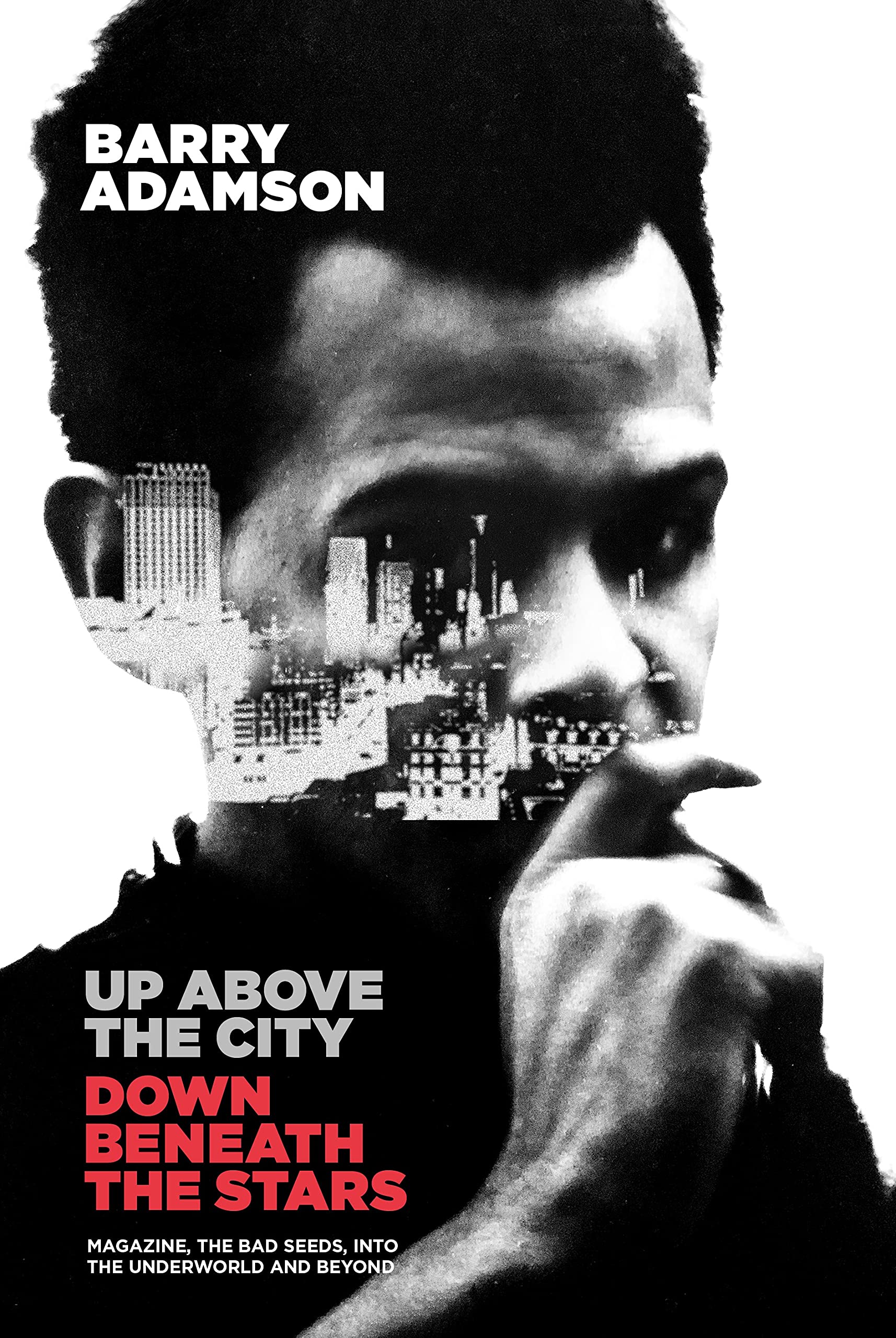
BARRY ADAMSON – Up Above the City, Down Beneath the Stars
- by J.N.
- Posted on 27-10-2021
Renowned artist Barry Adamson’s recently published autography is nothing short of a literary revelation. Many fine and hugely memorable memoirs and music-related books have seen the light of day this year, but the evocatively titled "Up Above the City, Down Beneath the Stars" undoubtedly sits at the very top of that list and is simply a thrilling read and a mandatory purchase.
Barry Adamson’s career is a varied and eclectic one, and while some may primarily associate him with the records "From Her to Eternity", "Kicking Against the Pricks", and "The Firstborn is Dead" by Nick Cave and the Bad Seeds, others may be fans of his early forays into post-punk with the group Magazine and their legendary releases from the late 70s and early 80s. And then there is his significant and unique catalogue of solo works and outputs. The first time I came across his name and music were back in 1997 when he contributed quite significantly to the soundtrack for David Lynch’s harrowing film titled "Lost Highway". Across 324 pages Adamson weaves a brilliant narrative chronicling his birth and upbringing in grimy, post-industrial Manchester and guides us through the gigs and recording sessions with the aforementioned Magazine, the grueling tours and inner dynamics of the earliest incarnation of Nick Cave and the Bad Seeds, the crippling drug addiction and the self-loathing, the paranoia and mental breakdowns, the failed marriage, the loss of loved ones, and the creative highs. Triumphs and defeats are locked in battle and wrestle with each other throughout the book. There is warmth, wit, sarcasm, and humor to this emotive yet noir-ish literary excursion into the past, but it is also frighteningly bleak and downright depressing at times. Everything is laid bare, and it truly feels as if one becomes one with the main protagonist and his inner struggles. The complexity of Adamson’s soul is evident in each paragraph and while some pages howl out in pain and anger, others are more serene and contemplative, but make no mistake; every inch of "Up Above the City, Down Beneath the Stars" is reflective and balances the uplifting and the somber (and everything in between) perfectly. It is revealing to the point where it feels as if one is watching a scene that is so private that one ought to look away, but leaving the reader feeling somewhat uncomfortable at times is unarguably one of its greatest strengths simply because it says so much about the human condition.
In many ways, Adamson’s uniquely personal approach to storytelling as it is laid out in this hauntingly beautiful tome of his is not entirely dissimilar to the vibe and atmosphere of his exceptional 2002 LP entitled "King of Nothing Hill". That may sound strange to some, but the book possesses a cinematic quality and is both seductive and exhilarating. Adamson’s visionary talents are many and I cannot wait for the follow-up to this one as "Up Above the City, Down Beneath the Stars" ends on a dramatic note in the late 80s. Stunning in every way. Now we just need the rest of the story, Barry.
